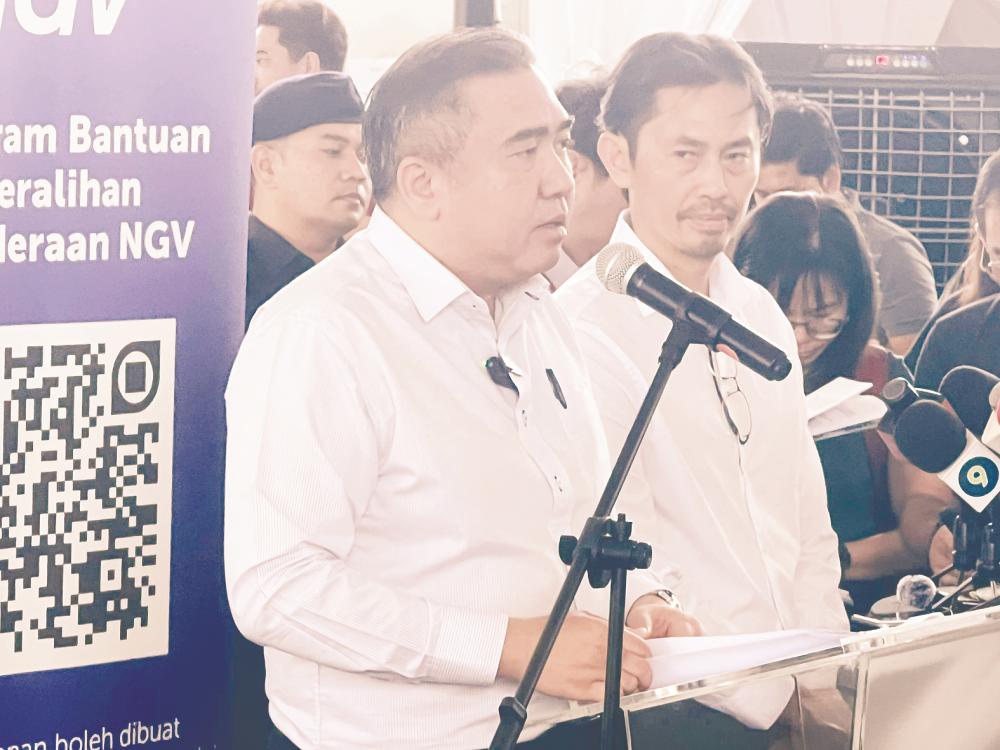KUALA LUMPUR: The Ministry of Transport’s decision to phase out natural gas for vehicles (NGV) and NGV-powered vehicles starting next year has drawn adverse reactions.
NGV users approached by SunBiz expressed dismay over the move, as NGV has been a cost-saving alternative.
Taxi Malaysia driver Khairul Zahari expressed concern over the recent government policy affecting NGV usage, highlighting that NGV has long been a cost-saving option for taxi drivers compared to petrol.
“As a driver, I am deeply affected by this move from the government, as it will increase operating costs significantly for taxi drivers,“ he said.
Khairul explained that switching to petrol would push up taxi fares, impacting drivers and passengers.
He said the one-time RM3,000 voucher offered to NGV drivers needs to be increased, noting that most taxis have been using NGV for years. “This change will severely impact all taxi drivers relying on NGV.”
Chandrasekaran Thangaraja, who has been driving a taxi since 1996, said the government’s move to phase out NGVs came as a surprise.
“As a taxi driver for so many years, I have been using NGV, and the cost of using petrol is high. It will also be a struggle for me to get to the designated workshop to remove the NGV kit (as I anticipate a long waiting period) and use petrol for my taxi,“ he told SunBiz.
Taxi driver Muhamad Fazli Shaari said the RM3,000 voucher is inadequate for taxi drivers, as they have spent around RM10,000 to install the NGV kit in their cars. “The installation alone was costly, and the RM3,000 voucher does not match what we have invested. Switching to petrol will raise costs for both drivers and passengers.”
Another taxi driver, Umesh, said many taxi drivers are not prepared to switch their vehicles away from NGV.
“NGV has helped us in many ways, including saving on costs that we bear ourselves. The voucher provided is inadequate, as it is only in voucher form, and RM3,000 is far too little for us,” he said.
The Transport Ministry said today vehicles that run on compressed natural gas, which includes NGV, will no longer be permitted to operate from July 1, 2025.
Transport Minister Loke Siew Fook, in announcing the new policy at Petronas Cochrane Perkasa, said this step was taken – following a Cabinet decision on Oct 2 – for safety reasons as most NGV vehicles in the country are reaching the end of their fuel tank lifespan.
He explained that Malaysia’s NGV vehicles fall into two categories – petrol vehicles converted to run on NGV (dual-fuel) and imported vehicles designed solely for NGV (mono-fuel).
Loke said according to the Road Transport Department (RTD), 44,383 NGV vehicles are active, representing 0.2% of the total number of registered vehicles in Malaysia.
Petronas NGV Sdn Bhd will introduce the NGV Vehicle Transition Assistance Programme, which offers three main packages to support affected owners, the minister said.
A one-off RM3,000 voucher package will be provided through the Petronas Setel app to assist eligible registered taxi drivers in the transition.
In addition, eligible dual-fuel vehicle owners may have their NGV kits removed free of charge at registered workshops.
As for mono-fuel vehicles, eligible owners will receive compensation based on current value, provided the vehicle is scrapped at a licensed automotive treatment centre.
Loke said Petroliam Nasional Bhd has started phasing out retail NGV supply nationwide from Oct 1, with complete discontinuation scheduled by the second quarter of 2025.
“This measure is to ensure that no NGV vehicles continue to use the fuel after the ban takes effect. This decision prioritises road user safety and aims to reduce the risk of injury or damage due to the use of NGV vehicles beyond their fuel tank lifespan,” he added.









